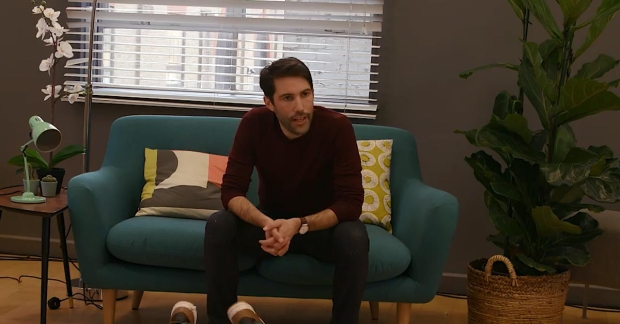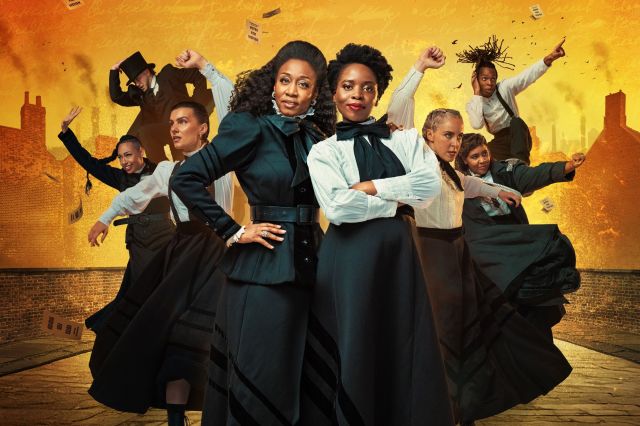Thomas Eccleshare: 'You don't have to be like David Hare to be a playwright'
As his new play opens at the Royal Court, playwright Thomas Eccleshare muses on what it means to be a writer and whether that has changed recently

Thomas Eccleshare enjoys making his plays a challenge to stage. In his first full-length debut play, which won the coveted Verity Bargate Award in 2011, one of the stage directions was 'a tree grows through the stage'. Relishing his stage directions is probably something to do with the fact that he was making devised plays with his artistic partner Valentina Ceschi – now his wife – for their company Dancing Brick since he graduated from Jacques Lecoq in 2006. Then it was his job to make all the mad things they wanted to happen, happen. Now he is revelling in the fact that he can write something down and someone else has to realise it. That also seems to be the case in his latest work, Instructions for Correct Assembly, which is about to open at the Royal Court. In it, a couple create a flat pack son. Here he explains a little about the piece, what frustrates him as a theatremaker and writer and what it’s like having Jane Horrocks star in your first play at the Royal Court.
How would you describe the play without giving too much away?
I usually say it’s about a couple who are building a flat pack son. They are building a perfect son. And as the play progresses you begin to realise that they had a son, who was less than perfect. It is set in an alternative present. It’s about perfection and what perfection looks like. Is one’s person’s perfection the same as someone else’s?
Have you had a lot to do in rehearsals?
Because this play is about a flat pack boy, there are quite a lot of technical questions about the boy, which I hadn’t considered too much when writing it. But that’s part of the production team’s job, to bring realism to it.
When you say flat pack, do you mean IKEA-style?
Yes. It’s about what goes into making a person. It’s satire – what if creating a person was as simple as 'insert personality here'. The boy is played by an actor, it’s not a puppet. I’m interested to see how the audience reacts to it. The play isn’t concerned with the robotics or mechanics of it all though, it’s concerned with the humanity of the child.
You’re always missing a screw at the end of a flat pack furniture moment though…
Exactly. Does it work out? The extended metaphor becomes increasingly revealing.
What inspired you to write it?
I wrote it while on attachment at the Royal Court, and opposite the theatre there’s a Peter Jones. So it was almost like a site-specific writing process, because I would walk around the shop – which I love – and there are these perfect room displays. And I would think: 'If only I could get that, or rearrange my room in such a way…' But as with all my plays I usually start with an image. And in this case it started with a scene from a man standing in front of a boy, and the boy is maybe being uncooperative, and the man takes a tool box and goes to the back of the boy’s head and unscrews it, fiddles about with some wires, puts it back together and the boy is fixed.

© Johan Persson
You were working in theatre before your first play Pastoral, what made you want to write that?
It depends on what your view of writing is. I graduated from Lecoq and I would say we had written a number of shows with Dancing Brick. They were devised, and they were fairly successful. It’s a different style, but I think sometimes people make the distinction between the two styles more of a thing than is maybe needed. I remember our company getting a review from the Guardian once where they said it’s great, but we could do with a writer being in the room. And I just thought: we would much rather you said: ‘there are flaws in the writing’. Writing Pastoral was sort of a reaction to that.
In what way?
A woman who used to work in the Royal Court literary department came to see one of our shows at BAC and she wrote to say she loved the show, but to give her a ring when I had written something. So I thought, well, I’ll write something.
Do you think things have changed in the new writing since you began?
Yes. Pastoral came out of a frustration with how writing is viewed in England, and I think that’s changed in the five years since it. [The prominence of] people and companies like Tim Crouch, Will Adamsdale, Made in China, the Team, the National Theatre’s Shed shows that the idea of writing has shifted. You don’t have to be David Hare in his own office to be a playwright, you can be RashDash making a dance show with words and it’s still a play.
Your most recent play Heather was a great success at the Fringe, will it tour?
Not at the moment. We originally were told we got a Fringe First, but when Joyce McMillan came to see it the day before we were going to be awarded it, she realised she’d seen the play before – we thought we were clear about where the show had been, we'd had a week in Glasgow. But that made it ineligible. Which was quite galling, and I think it cost the show an extra life, which might have saved us from losing money on it.
You mentioned money, are you finding you’re able to focus just on theatre?
I balance it out with writing for TV and film, and I enjoy those things, so it’s not a compromise. But, and I think every writer would feel like this, you definitely feel like you’re grafting. So if anyone wants to commission a play…
How are you feeling about the show being on at the Royal Court?
Great. Jane Horrocks is in it too and she was so much my first choice for this show. I absolutely love her. I had obviously seen her on screen but I saw her in Annie Get Your Gun a few years ago and she’s so good. Don’t get me wrong, there’s a real thrill with the show being on at the Royal Court, but it’s more the fact that it gives you access to Jane Horrocks, and the scale of design. It’s the investment – artistically in terms of manpower and cash.
Instructions for Correct Assembly runs at the Royal Court from 13 April to 19 May, with previews from 7 April.

















